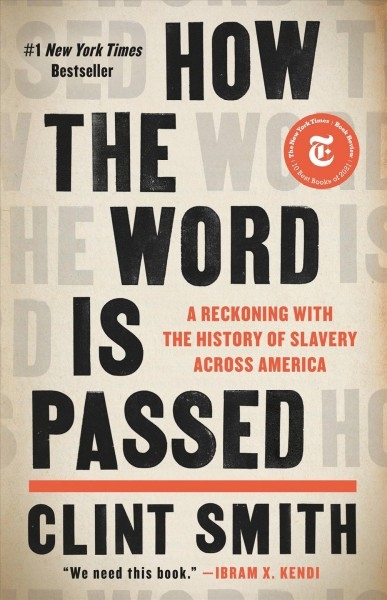
In 2021, poet, scholar, and Atlantic Magazine staff writer Clint Smith published his first major work of nonfiction, How the Word is Passed: A Reckoning with the History of Slavery Across America (2021). Upon its release, the book received extensive acclaim; it went on to win numerous awards, including the National Book Critics Circle Award for Nonfiction. One reviewer wrote that if he had the funds, he would buy a copy for every resident of the United States. Having just finished reading it, I can see why.
In How the World is Passed, Smith strives to understand how people generally remember slavery through public institutions and community practices. He visits eight significant historical sites in various states, along with one location abroad, and writes about the experience in rich, informative prose, synthesizing first-hand experience, extensive research, and interviews. In bearing witness to what actually happened and continues to happens in places like plantations, prisons, memorials and cemeteries, Smith reveals how much of the history of slavery has been erased so that America can tell itself what it prefers to remember. He connects the past, frequently hiding in plain sight, with current effects.
How the Word is Passed—A Reckoning with the History of Slavery Across America is an important work, one of my favorite nonfiction books in recent memory. I highly recommend it to anyone is seeking an enlightening and provocative read.